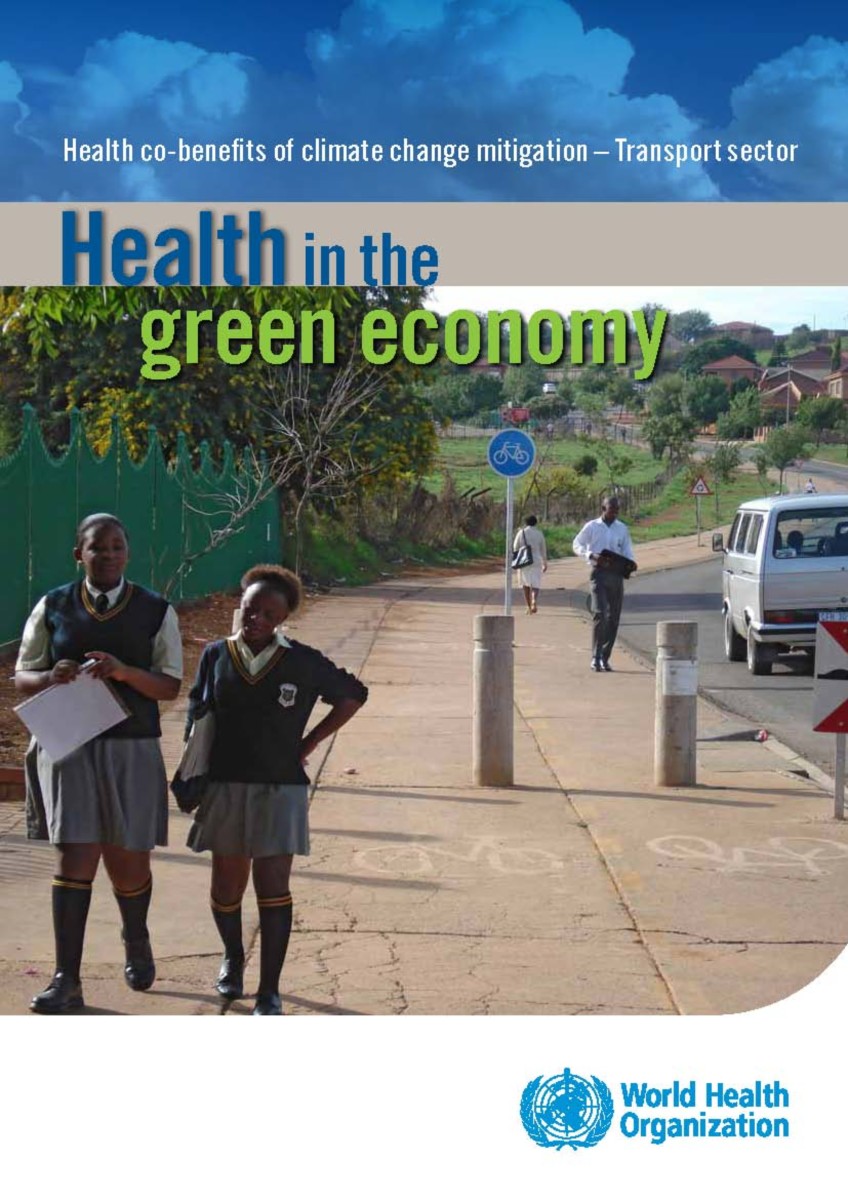Health in the Green Economy
Health Co-benefits of Climate Change Mitigation - Transport Sector
- Publisher
World Health Organization - Published
6th February 2014 - ISBN 9789241502917
- Language English
- Pages 144 pp.
- Size 6.75" x 9.25"
Cycling, walking and rapid transit systems are associated with a wide range of health benefits that need to be reflected more systematically in transport and development policies. Health benefits may include: reduced risk of heart disease, some cancers, type 2 diabetes, and some obesity-related risks from more physical activity; reduced health risks from urban air pollution; reduced traffic injury risks and less noise stress. Rapid transit, walking and cycling systems also improve access to vital jobs, services and opportunities and ease the mobility of vulnerable groups, such as children, people with disabilities, and older adults, enhancing health equity.
This report, part of the Health in the Green Economy series, considers evidence regarding health co-benefits, and risks, of climate change mitigation strategies for transport, as reviewed by the Intergovernmental Panel on Climate Change.
"This report makes an important contribution to the transport, planning, health and climate change literature by sign-posting the need to assess co-benefits and co-costs of transport and land use planning interventions. With reference to the IPPC work, many of the implications of a technology-linked transport sector emissions mitigation agenda for public health – considered very broadly – were identified."
Ryan Falconer, Agitator for better transport outcomes - , ARUP
"This report is greatly a new dimension towards Sustainable Transport Planning.The report further justifies the multidisciplinary nature/characteristics of transport.For instance, traditionally the primary objective of every transport planning is to provide accessibility to people and freight at the least cost, with little or no consideration for the health or climate implication of such access or mobility being provided. But,
Joshua Odeleye,PhD., Assistant Director - , Nigerian Institute of Transport Technology
this report has emphasized the important role of health consideration in transport planning and infrastructure provision. With its series of concepts and models on the interrelationship between transport, climate change and health, it would help developing countries to justify and/ or benefit more from CDM finance globally.
In sum, the report has contributed the following to frontier of knowledge in transport planning:
1) Possibility of climate change mitigation through a more reassured healthier transport strategies;
2) An emphasis on Travel Demand Management,rather than technologies applications and alternative fuels;
3) A pro-poor approach to climate change mitigation in transport;
4) Offers a win-win solutions indeed;
5) Awakening a new health interest in Sustainable Transport Planning"
World Health Organization
World Health Organization is a Specialized Agency of the United Nations, charged to act as the world's directing and coordinating authority on questions of human health. It is responsible for providing leadership on global health matters, shaping the health research agenda, setting norms and standards, articulating evidence-based policy options, providing technical support to countries, and monitoring and assessing health trends.


